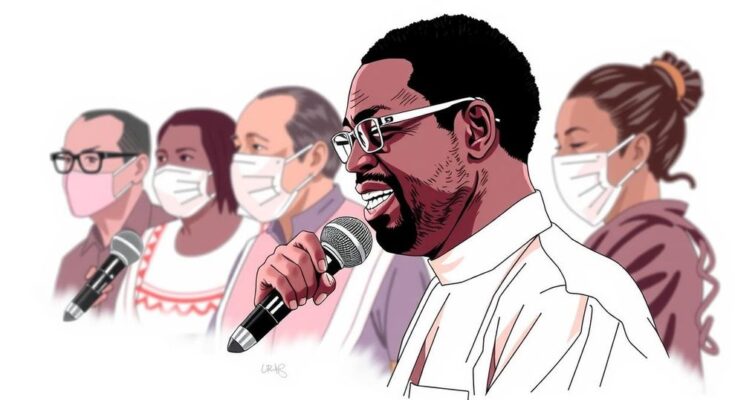Chad is poised for local council, regional, and parliamentary elections amid threats from opposition groups to disrupt the process due to fears of rigging by the ruling government. Citizens express uncertainty about voter safety, while the government asserts its commitment to secure the elections. The atmosphere is tense following recent arrests of opposition members, leading to calls for a boycott and protests against the current leadership.
Chad is facing escalating tensions as opposition groups and civil society organizations threaten to disrupt the upcoming elections scheduled for Sunday. They assert that these local council, regional, and parliamentary elections will be manipulated to benefit the ruling President Mahamat Idriss Deby. Activists are actively engaging with citizens across various neighborhoods, advising them to refrain from voting due to the anticipated risk of violent reprisals aimed at voters. Limana Abba, a university student in N’djamena, expressed uncertainty about participating in the elections due to the increased threats, stating that the opposition aims to deter voter turnout through intimidation.
In contrast, the government has promised to ensure the safety of voters, candidates, and election officials, deploying military and police forces to maintain order. However, skepticism remains among the populace regarding the government’s ability to protect them amid these intimidating messages. Despite these threats, the Elections Management Body (ANGE) is urging citizens to ignore them and participate in the elections, asserting its commitment to conducting fair and transparent polls. The backdrop of this electoral process includes a three-year transitional period following the death of long-serving leader Idriss Deby Itno, with the legislative elections intended to restore the dissolved National Assembly.
The political atmosphere is charged, with ongoing campaigns from opposition parties advocating for a boycott of the elections. Soumaine Adoum, spokesperson for the coalition Wakit Tama, indicated that public trust in President Deby is waning, citing a history of oppression and corruption under his leadership. He urged all Chadians to remain at home on election day as a form of protest against the government’s increasingly authoritarian stance. This climate of fear is further exacerbated by recent arrests of opposition figures, which have reinforced suspicions about the electoral process’s integrity.
In summary, the upcoming elections in Chad are marred by significant tension and distrust, with opposition factions vowing to disrupt the voting process amid concerns over safety and fairness. The state’s assurances of security stand in stark contrast to the widespread fears among citizens, posing potential challenges to voter participation and the legitimacy of the elections.
Chad is currently experiencing a politically charged environment as it prepares for local council, regional, and parliamentary elections. Following the death of long-time President Idriss Deby Itno in April 2021, the country has been navigating a transitional period marked by unrest and distrust towards the ruling government led by Mahamat Idriss Deby. Civil society groups, which are meant to support governance and human rights, have increasingly engaged in protests against what they claim are corrupt and illegitimate electoral practices. Amidst this backdrop, the government has attempted to assure voter security but faces significant skepticism from the public. The elections aim to restore a legislative body that was dissolved in 2021 but are overshadowed by fears of violence and election tampering.
In conclusion, the upcoming elections in Chad highlight a pivotal moment in the nation’s political landscape, characterized by severe tensions and a profound lack of trust in the electoral process. The opposition’s threats to disrupt voting, coupled with the government’s efforts to ensure security, create a scenario fraught with uncertainty. The civil society’s call for a boycott symbolizes widespread discontent regarding governance in Chad, raising concerns about the future of democracy and human rights in the country during this critical electoral period.
Original Source: www.voanews.com




